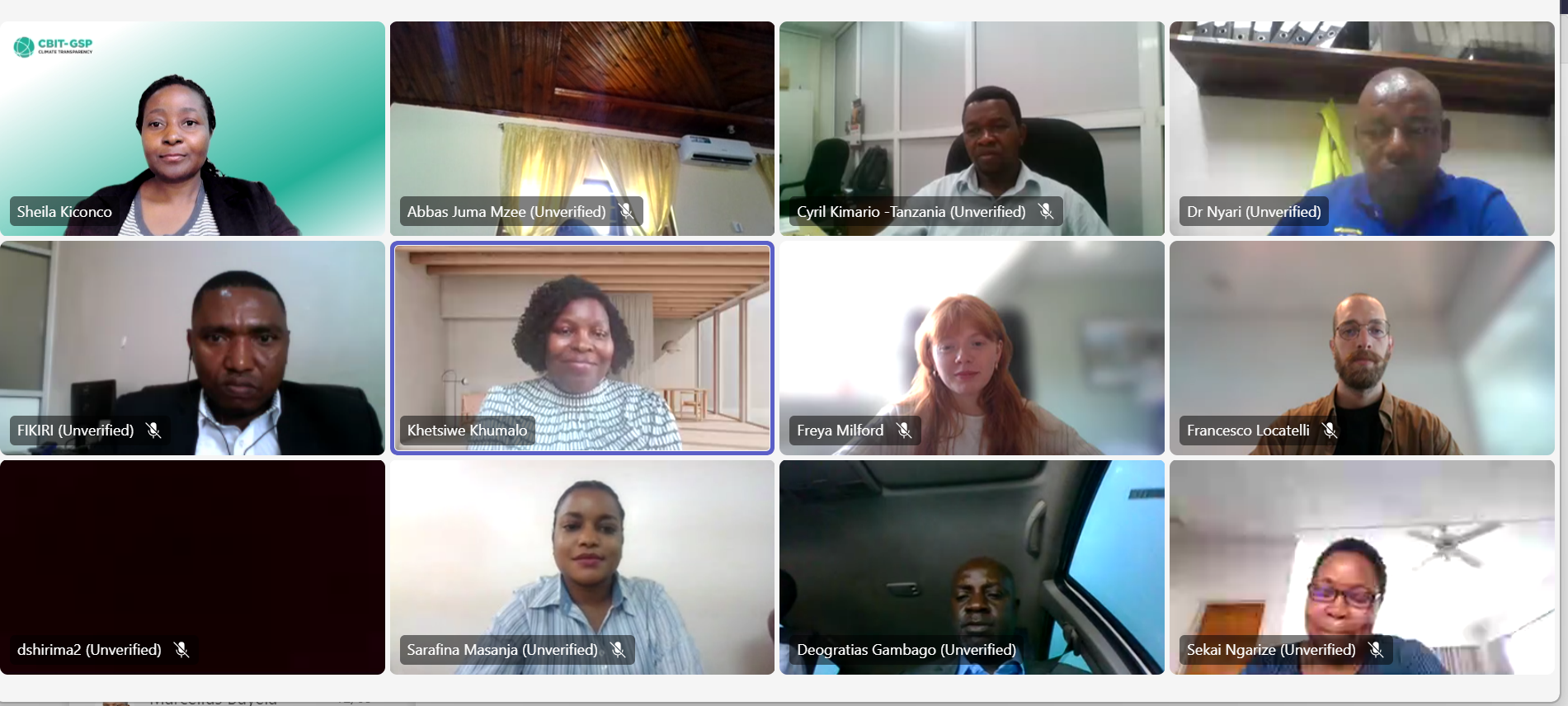
By invitation
The link to webinar1 https://youtu.be/ykKy0_kl5Fc
Background
The MPGs, formulated to implement transparency in reporting under the Paris Agreement, defined specific new requirements for reporting the results of national GHG inventories. As such, information on national GHG inventory results should be included in a specific chapter of the BTR (Chapter I) and supporting information should be included in the annexes. In addition, all Parties must provide a national inventory report (NIR), which consists of a national inventory document (NID) and the common reporting tables (CRT), to the UNFCCC as part of each country´s BTR submission process.
Although many countries are aware of Article 13 of the Paris Agreement, there is still limited understanding of the reporting requirements and MPGs. Tanzania has not received specific training on the Enhanced Transparency Framework (ETF) and MPGs of the Paris Agreement. The country has already started preparing for its BTR. However, the task of reporting on the associated processes that lead to NDC tracking to comply with the transparency conditions established in Article 13 might pose a challenge if the country does not receive the required capacity.
About Tanzania
Tanzania ratified the UNFCCC Convention in 1996. The country has undertaken a wide range of activities as part of efforts to ensure an effective implementation of the Convention. Since ratifying the Convention in 1996, Tanzania has prepared and submitted the national reports listed below to the UNFCCC:
- Initial National Communication (INC), March (2003)
- Second National Communication (SNC), September (2014)
- Intended Nationally Determined Contribution (INDC), September 2015
- Nationally Determined Contribution (NDC), July 2021
To this end, Tanzania requested the CBIT-GSP to provide support and capacity-building of Tanzania’s technical staff in responding to the reporting provisions under the UNFCCC and the Paris Agreement’s Enhanced Transparency Framework and ultimately increase ambition for climate action. Specifically, Tanzania’s technical staff will be trained on the key elements of developing the national GHG inventories under the ETF of the Paris Agreement.
Objective
The purpose of the GHG Inventory Training, following the IPCC 2006 Guidelines for the Waste and Agriculture, Forestry and Other Land Use (AFOLU) Sectors, is to report greenhouse gas (GHG) inventories. This hands-on training, incorporating the IPCC software, is designed to equip the participants with the necessary skills to improve their contributions to the national reporting under the Enhanced Transparency Framework (ETF) of the Paris Agreement. The training aims to ensure that Tanzania's GHG inventories are accurate, comprehensive, and conform to UNFCCC modalities procedures and guidelines for reporting under the ETF, thus supporting informed policymaking and contributing to global efforts in combating climate change. The specific objectives are;
- To strengthen the capacity of Tanzania’s technical experts in preparing and reporting GHG inventories under the ETF.
- To deepen the technical experts’ understanding of the 2006 IPCC Guidelines for GHG inventories, focusing on methodologies, data collection, and reporting requirements for the Waste and AFOLU sectors.
- To provide participants with practical skills in using the IPCC software for GHG inventory compilation and analysis. This includes training on data input, manipulation, and interpretation of outputs, enabling participants to accurately estimate GHG emissions and removals.
The Approach
The training will be conducted using a two-phase approach. The first phase will consist of two introductory webinars that will mainly set the training stage and cover the foundational, procedural, and governance processes of the national greenhouse gas inventories. The first webinar will focus on the foundational elements and rationale of GHG inventories and the new requirements for reporting national GHG inventories under the Paris Agreement (MPGs) and associated flexibility provisions, whilst the second webinar will take participants through the governance and procedural processes necessary for sustainable GHG inventory process under the ETF.
The second phase will be an in-country hands-on training in Tanzania on the 2006 IPCC guidelines for national greenhouse gas inventories for AFOLU and Waste including the IPCC inventory software. It is envisaged that through this training, participants will acquire the necessary knowledge and insights for reporting of the national inventory under the ETF.
